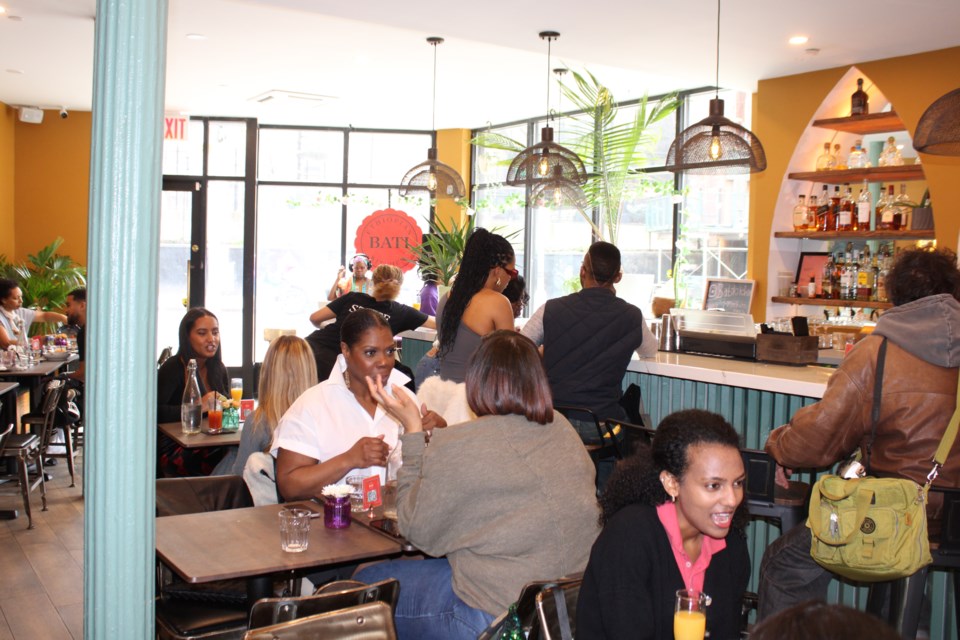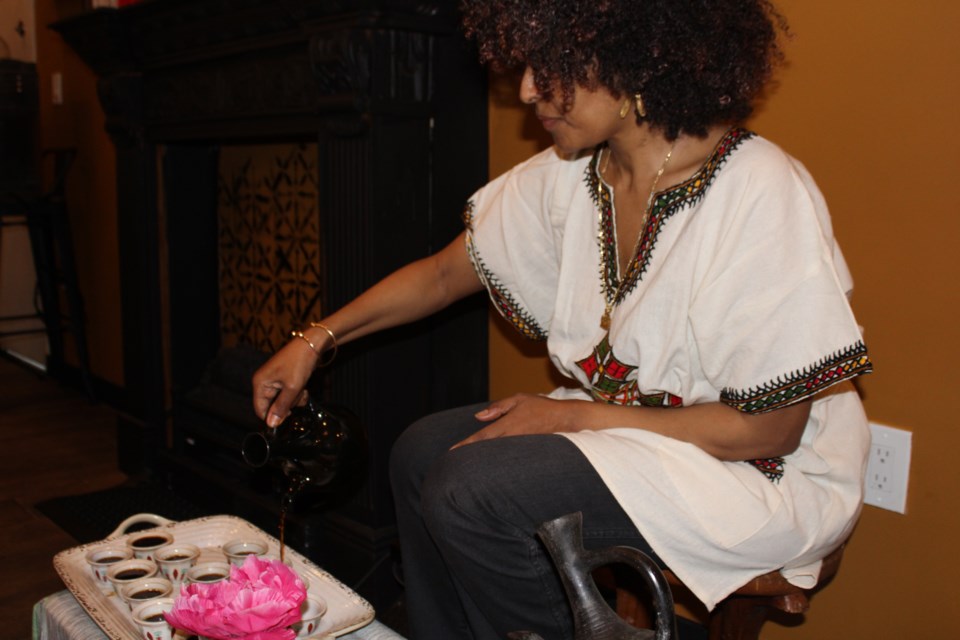Brooklyn has no shortage of places to pick up a cup of coffee, but Bati Ethiopian Kitchen, a traditional Ethiopian eatery in Clinton Hill, offers a unique experience that harkens back to the origins of the caffeinated drink.
Coffee has a deep significance in Ethiopian culture, according to Bati's owner Hibist Legesse. The drink is believed to have originated in the country in the ninth century and legend says that a goat herder first discovered the effects of coffee after witnessing his flock become energized after chewing on the coffee plant, according to Legesse.
Legesse said she started offering a traditional Ethiopian coffee ceremony, a complex and communal ritual, every Saturday. Although the coffee is traditionally brewed over a coal fire in a clay pot, in more modern versions, like the one at Bati Kitchen, the coffee is brewed over a small, fire grill.
The coffee, served black, is then poured into small cups called sini. Often served with popcorn as a side-dish, Legesse said the ceremony can last up to several hours.
“Coffee is a time of sitting and meeting with your neighbors, your friends," she said. "After lunch, you congregate for coffee. It’s a time to just relax and catch up with each other. It creates community.”
The coffee is brewed for several rounds, each carrying its own name and significance. The first round, called abol, makes the strongest coffee. This round is meant for pleasure. The second round, or tona, produces a milder coffee as it uses the same coffee grounds from the first round. This round is meant to provoke contemplation. The third and final round, baraka, is the weakest coffee and signals the end of the ceremony. This round is meant to bestow a blessing.
“It can be a whole afternoon affair,” Legesse said of the ceremony.
First opened in 2009, Bati Kitchen was born out of Legesse’s desire to start a business that shared her culture. Though she is not a professional chef, Legesse learned how to properly cook traditional Ethiopian dishes from her older relatives.
The menu includes Ethiopian staples like Doro Wot, a spicy chicken stew, and Injera, a flavorful pancake-like bread, as well as a host of vegan options and modern fusions like waffles made from teff, a grain from East Africa.

The name "Bati" comes from a region in northern Ethiopia that was known to be a bustling meeting place for young people. After 14 years in Fort Greene, Bati moved from its original location to a larger space between Clinton Hill and Bedford-Stuyvesant in August of 2023. Legesse said the move was in part to have more space to facilitate events like the traditional Ethiopian coffee ceremony.
On Saturday, Bati launched their new brunch menu with a special event featuring a DJ and a henna artist. Guests were treated to a complimentary traditional coffee ceremony, where Legesse herself brewed the coffee.
“It's very traditional food for nighttime, but in the daytime, we're giving it a little bit of a modern twist,” said Legesse of Bati’s cuisine.
Though Bati offers coffee as a regular menu item, Legesse said she hopes to perform the ceremony for patrons on Saturdays.




